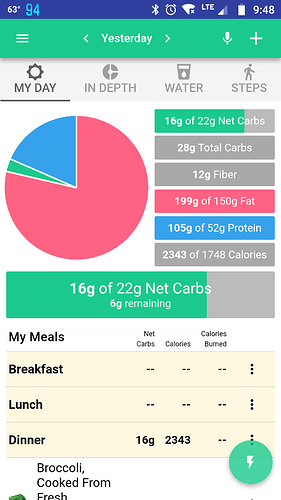Interesting. You were working on a hunch, and not a physical sensation of any kind, then, if I understand you correctly. The article is clearly not a call to track but to set daily limits. I live on the high end of their recommendations, and I expect I shall continue to.
I’d be curious if others have a way through “listening to their bodies” know they’ve had too much protein. Maybe it’s as simple as the satiety signal?



 α-ketoglutarate + aspartate
α-ketoglutarate + aspartate